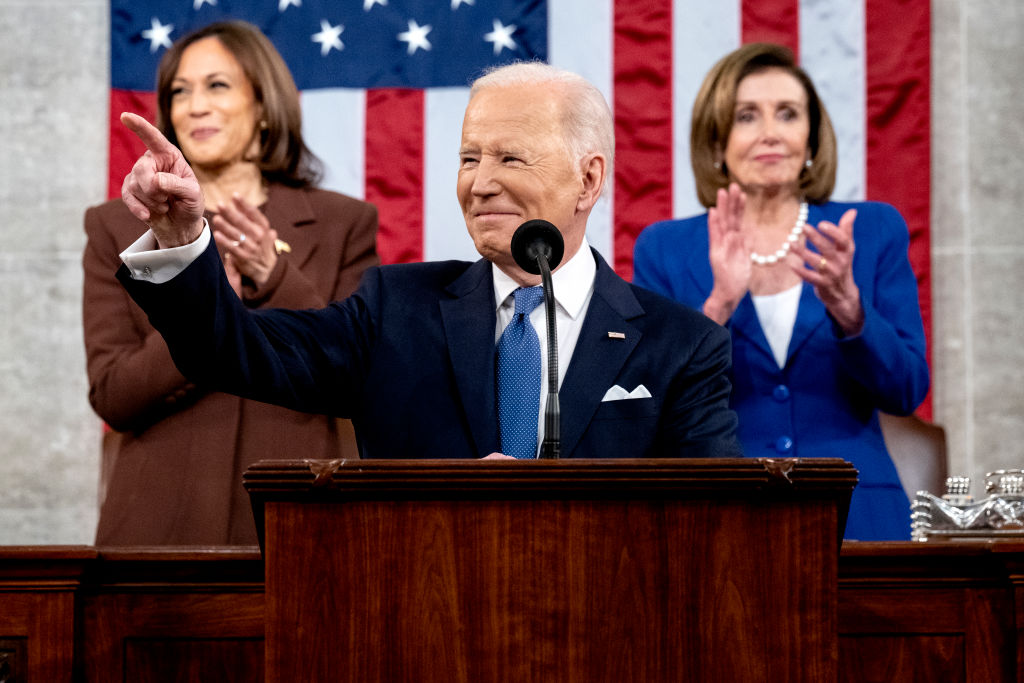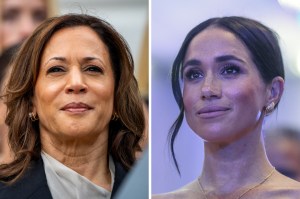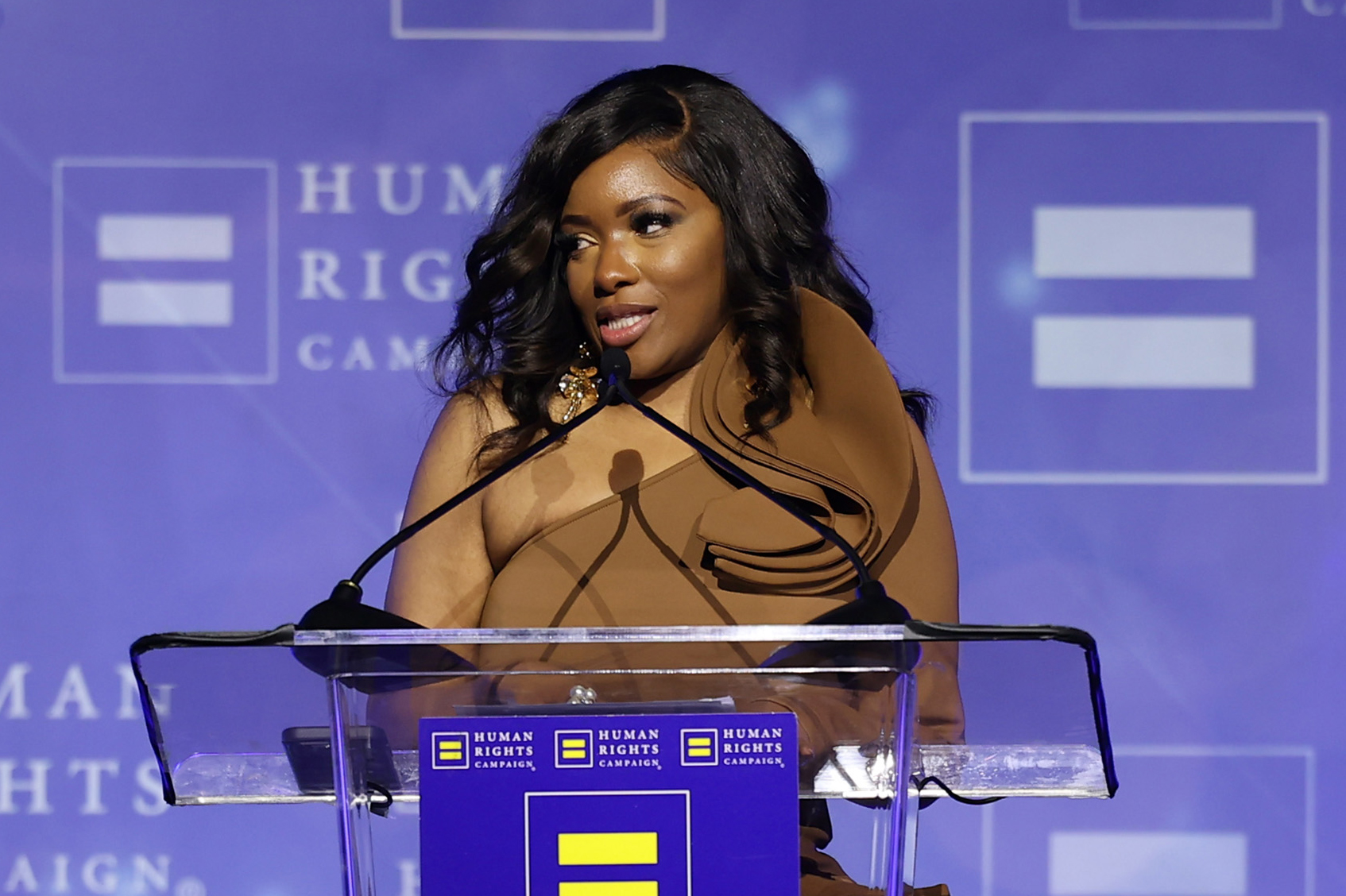America is a young nation — and young at heart. Our national ethos is centered on those four words in the Declaration of Independence, “the pursuit of happiness.” In order to pursue anything, you need a certain vigor.
America had vigor even before the youth culture of the Sixties revolutionized how we thought about age. That decade ushered in the famous slogan “don’t trust anyone over thirty.” We’re not nearly so politically incorrect now, but the mentality still holds. America is forever prodding and poking its young, waiting for some wellspring of Talmudic wisdom to come gushing forth. What does Gen Z think?! Gen Z would just like to finish high school, thank you very much.
Yet while America is obsessed with youth, the baby boomers, who insisted on staying “forever young,” are starting to look a bit old. By their own logic, they ought to get out of the way, right? Time to make room for a new youth culture with its own ideas? Think again. American leadership in 2022 is defined by the boomers and the just barely pre-boomers, a wrinkled hand refusing to relinquish its grip on the levers of power.
Welcome to one of the many paradoxes of American life. As we forever search for the Fountain of Youth, we’re being governed by a gerontocracy.
The most glaring example, of course, is our fearless leader, Joe Biden, who is a sprightly seventy-nine years of age. Biden was born one year after the United States entered World War Two. For comparison, his son Hunter is nine years older than JFK when he was elected president. If it seems impolitic to dwell on the age of our eldest commander-in-chief, try considering it an exercise in government transparency. “I’m now looking forward to celebrating my fifty-eighth birthday,” Biden said the day before he turned seventy-nine.
Given that Biden recently gaffed Russian regime change into official policy, given that the left constantly brought up Ronald Reagan’s supposed Alzheimer’s back in the Eighties, the president’s age is more than fair game. But we also shouldn’t shortchange Biden. He’s hardly the only one who’s been coasting on his seniority.
The most powerful person in America not named Joe (no, not you, Kamala) is Speaker of the House Nancy Pelosi, who clocks in at eighty-two years of age. How long has Pelosi been around? She’s represented California in the House of Representatives for a fifth of the time California has been a state. Her counterpart in the Senate, Chuck Schumer, is a mere seventy-one years young, and no doubt likes to tease her with his spirited whippersnapping.
Also in the Senate is another Californian, Dianne Feinstein, who first came to national prominence when Harvey Milk was assassinated in 1978. At eighty-eight, Feinstein is older than them all, and according to the San Francisco Chronicle, it’s starting to show. She reportedly suffers from memory lapses and has difficulty following policy discussions. Until last year, she was the lead Democrat on the powerful Judiciary Committee.
Elsewhere we find Dr. Anthony Fauci, face of the government’s Covid response, age eighty-one; left-wing insurgent senator Bernie Sanders, voice of the millennial generation, age eighty; and House Majority Leader Steny Hoyer, who turns eighty-three this month. How is America’s political pulse these days? It’s starting to feel a bit faint.
That isn’t to say age is everything, of course (though considering Biden mispronounced “kleptocracy” three times in a row on national TV, it does appear to be more than just a number). And neither is elected government everything. Biden’s cabinet is relatively young — and much of the bureaucracy is staffed by the kind of green-behind-the-ears idealists who seek out careers in Washington, DC.
Still, it’s remarkable that any kind of gerontocracy exists at all. Twelve years ago, the Republican Party was full of youthful energy thanks to a new class of fresh Tea Party faces, such as Rand Paul, Marco Rubio and Ted Cruz. Four years ago, the Democrats felt the same way, as Conor Lamb won in Pennsylvania and the Squad strutted into the House. Yet it wasn’t to be: the Tea Party was eclipsed by Donald Trump (age seventy-six this month) and the Squad was undermined by Pelosi. The old guard won out — or at least the old did.
The result is that our federal policy has been shaped by the elderly for the elderly. Much has been written about how the boomers have jury-rigged the government for their own benefit, refusing even slight changes to Social Security and Medicare as the young drown in a tidal wave of debt. Such assessments may not be entirely fair, but none of those problems will be solved by our current president, who seems to have run out of ideas altogether. Pressed against the wall, Biden last year came up with this novel brainstorm: let’s pass another stimulus package! Or: let’s rob the kiddos to pay the adults — again.
It’s a strange look for a country that once heeded JFK’s call to pass “the torch to a new generation of Americans.” And though there are younger political hopefuls out there, it’s hard to envision noted electoral dynamo Pete Buttigieg running down the street with the eternal flame in hand. The young will wait around and itch for their turn, as government gets creakier — in more ways than one.
This article was originally published in The Spectator’s June 2022 World edition.

























